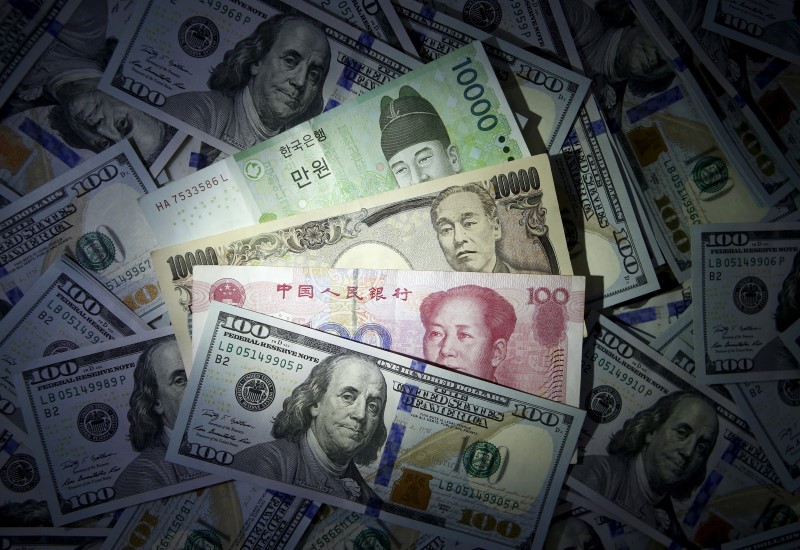By Jemima Kelly
LONDON (Reuters) - The yen surged by more than 2 percent against the dollar on Thursday to hit a 22-month high, after the Bank of Japan held off from expanding its monetary stimulus programme and the U.S. Federal Reserve struck a cautious tone.
The safe-haven yen, which also hit multi-year highs against the euro (EURJPY=) and sterling (GBPJPY=), has climbed 7 percent against the dollar
Because of that rise, as well as anaemic inflation in Japan, some investors had expected the BOJ to offer some further easing measures. Its failure to do so sent the dollar to as low as 103.555 yen
The greenback had already been weakened late on Wednesday by a statement and news conference from the U.S. Federal Reserve, which lowered its economic growth forecasts, cementing expectations that it will not tighten policy next month. The Fed did, nevertheless, signal that it was still planning to raise interest rates twice this year.
"If the Fed and BOJ had done opposite things – if the Fed had been a bit more hawkish, and if the BOJ was a bit more dovish ... that would have pushed dollar/yen higher. But neither of those things happened," said UBS's director of currency strategy, Constantin Bolz, in Zurich.
By 1140 GMT the greenback had edged back up to 104.40 yen, after BOJ Governor Haruhiko Kuroda said at a news conference that the central bank "won't hesitate in taking additional easing steps if needed" to reach its 2 percent inflation target. But that still left the yen up 1.6 percent on the day.
UBS's Bolz said a slightly less risk-averse mood had taken hold across markets than earlier in the day, which had also weakened the yen a touch.
In London, Societe Generale (PA:SOGN) currency strategist Alvin Tan said the yen's surge was more down to the Fed's dovish stance than the BOJ's refraining from further easing, which had been expected.
Tan added that the yen's rise had been exacerbated by the triggering of a large number of stops around 105.60 yen, which he said was a key technical level.
The Swiss National Bank, which, like the BOJ, faces unwanted safe-haven demand for its currency, kept interest rates unchanged, as expected. But SNB Governor Thomas Jordan said the central bank would be closely watching Britain's EU vote next week, and would "take measures if required".
The Swiss franc gained a touch after those comments to trade flat on the day at 1.08215 francs per euro (EURCHF=). But that still left it close to a six-month high of 1.0791 hit earlier in the week.

For Reuters' new Live Markets blog on European and UK stock markets see reuters://realtime/verb=Open/url=http://emea1.apps.cp.extranet.thomsonreuters.biz/cms/?pageId=livemarkets